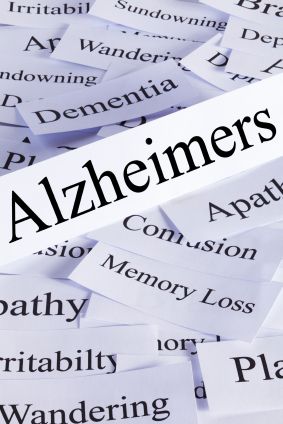Diet
A New Treatment For Alzheimer's Disease?
New Alzheimer's treatment: Diet, exercise, supplements, sleep and meditation
Posted October 24, 2014
Alzheimer’s Disease (AD). Perhaps nothing conjures up more fear in the aging population. As we grow older, our bodies go through a natural transformation -- some humorous, some aggravating and some shocking, and the brain is not exempt. Mental deterioration in the elderly can cause memory loss and confusion, but the incredible human brain can adapt, even grow new brain cells during the senior years.
A quick primer on cognitive decline in the elderly. The key here is that all dementia is not Alzheimer’s. Conditions such as anxiety, depression, hypothyroidism and alcoholism can all mimic Alzheimer’s symptoms and these conditions are treatable, so a work up is mandatory. However, when the treatable cases are ruled out, there is little in the way of treatment for Alzheimer’s except in the milder cases, and these treatments merely delay rather than halt the progressive symptoms.

For those who have Alzheimer's, the prognosis is grim. Simple forgetfulness or confusion often leads to disorientation, mood changes and unfounded suspicion of friends or caregivers. Alzheimer's usually affects those 65 and up but may rarely occur in the 40s. Alzheimer's is the 6th leading cause of death within the US and is incurable. But a new study offers hope.
Director of the Easton Center for Alzheimer's Disease Research at the University of California and neurology professor Dr. Dale Bredesen tested a fresh, extensive therapeutic program that targeted sleep, diet, exercise and stress. They studied ten patients with enough memory loss that it significantly disturbed their employment (or forced them to stop working entirely) and shattered their personal lives. The results were impressive: Of the ten participating patients, the memory and function of nine were significantly improved. The six patients who experienced such memory loss that they were struggling or forced to quit work were all able to return. The only patient who did not experience memory improvement had severe AD symptoms.
Based on initial test results, this program incorporates 36 changes or points, with each point being personalized for each patient. Some points are:
• Removing simple carbs, gluten and processed foods from the diet.
• Incorporating yoga, meditation and exercise.
• Adding more fruits, vegetables and fish to the daily diet.
• Sleeping at least 7 to 8 hours every evening.
• Taking methylcobalamin, vitamin D3, fish oil and CoQ10 daily. Nightly taking melatonin.
• Shifting from manual to an electric flosser and toothbrush.
• Taking hormone replacement therapy.
• Fasting for 12 hours between dinner and breakfast; fasting 3 hours between dinner and bedtime.
Dr. Bredesen's paper can be read in its entirety in the online magazine, Aging.

Could making these changes, along with a comprehensive and personalized therapeutic system, really combat Alzheimer's and memory loss? Of course there are issues to discuss. The study looked at cognitive decline, specifically. Since Alzheimer’s cannot be definitively diagnosed until autopsy, we cannot be sure how many of the subjects had true AD. About 25- 30% of new onset cognitive decline cases are NOT Alzheimer's and may be treatable, so again, the numbers of true Alzheimer's patients here are just not known.
Also, how long do the benefits last? The study stretched to two plus years for some of the participants, but for a lifelong disease more follow up is needed before concluding this is a cure vs a remission or just a slowing down of the disease progression. However, one theory holds that Alzheimer's is a “side effect” of chronic systemic inflammation and the whole approach listed above certainly addresses that from mouth to gut to hormones to stress to vitamin deficiencies.
Clearly more extensive clinical trials are needed to determine if these changes will not only improve but actually reverse the underlying brain pathology associated with Alzheimer's disease and cognitive impairment. But, overall, this is an exciting new study. Stay tuned.


